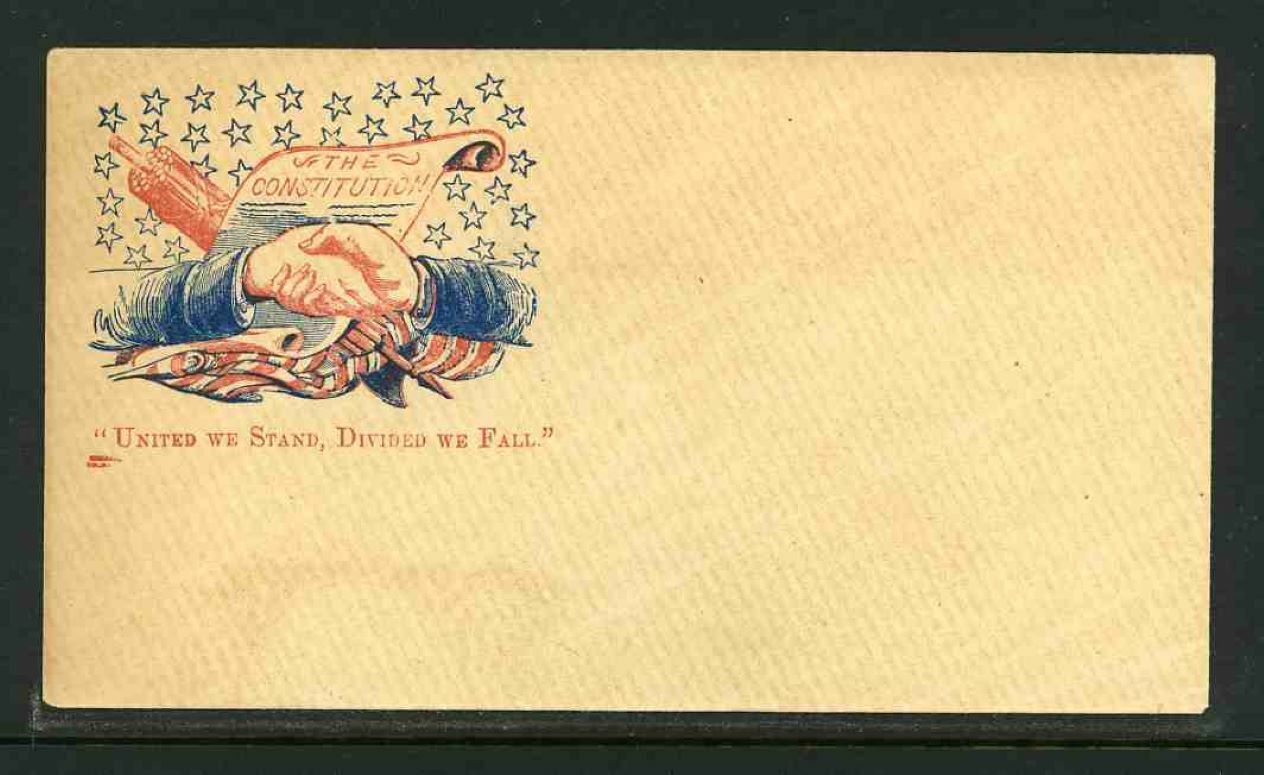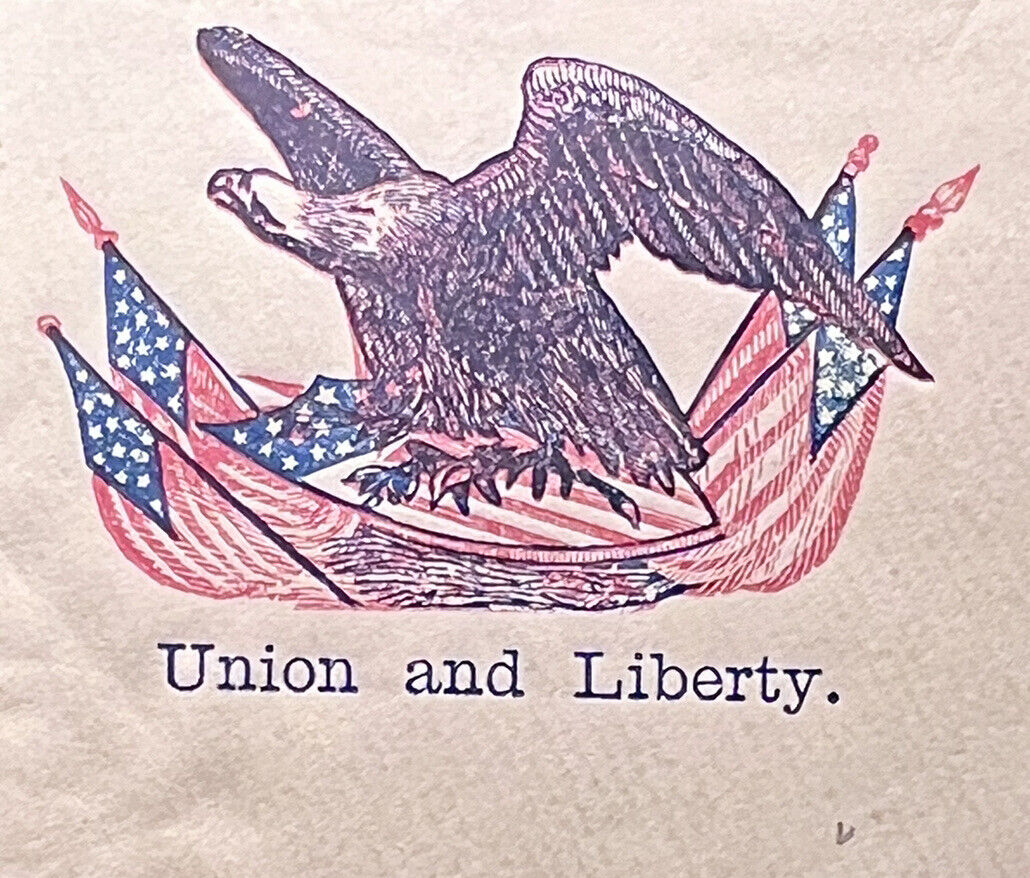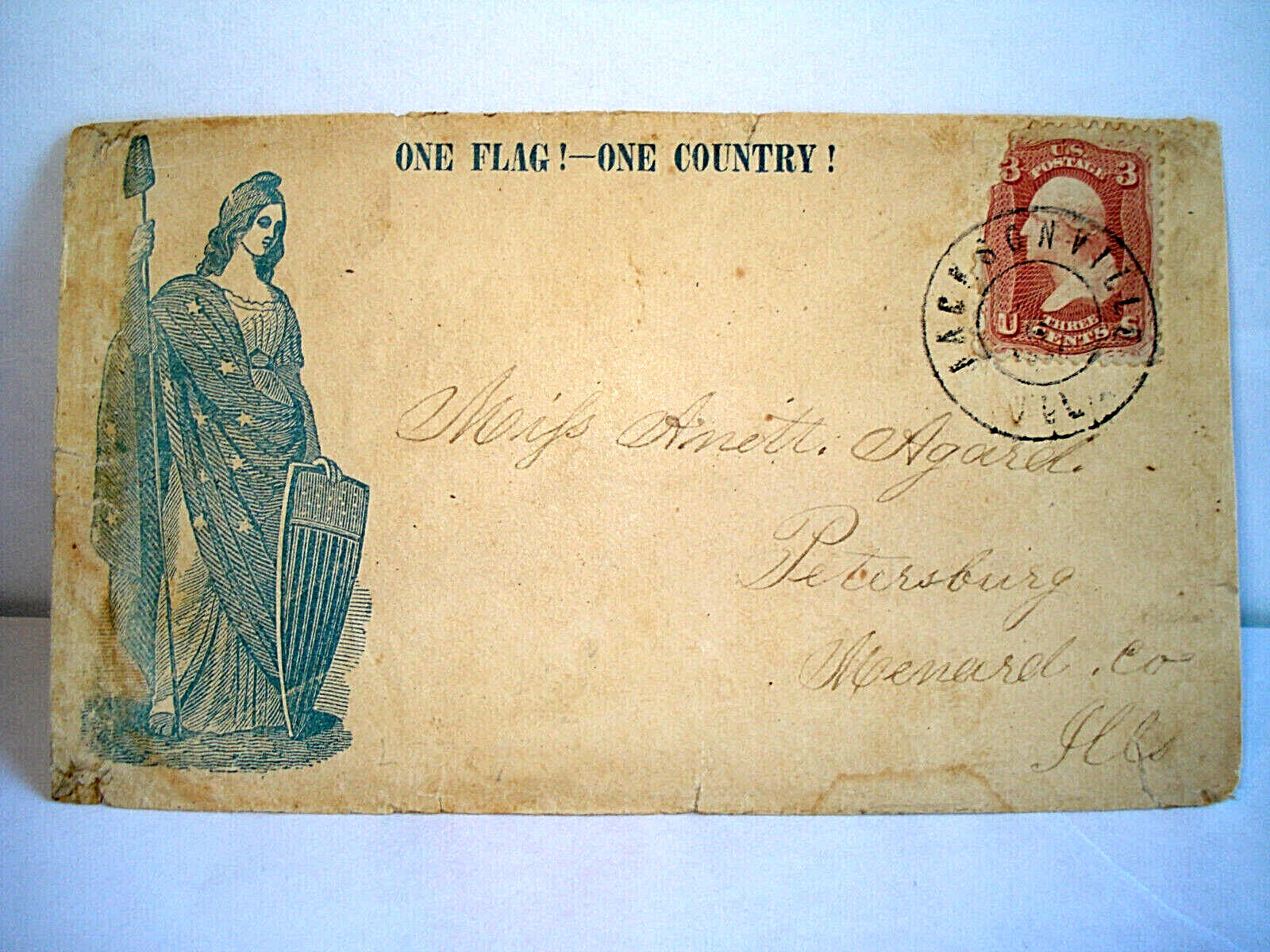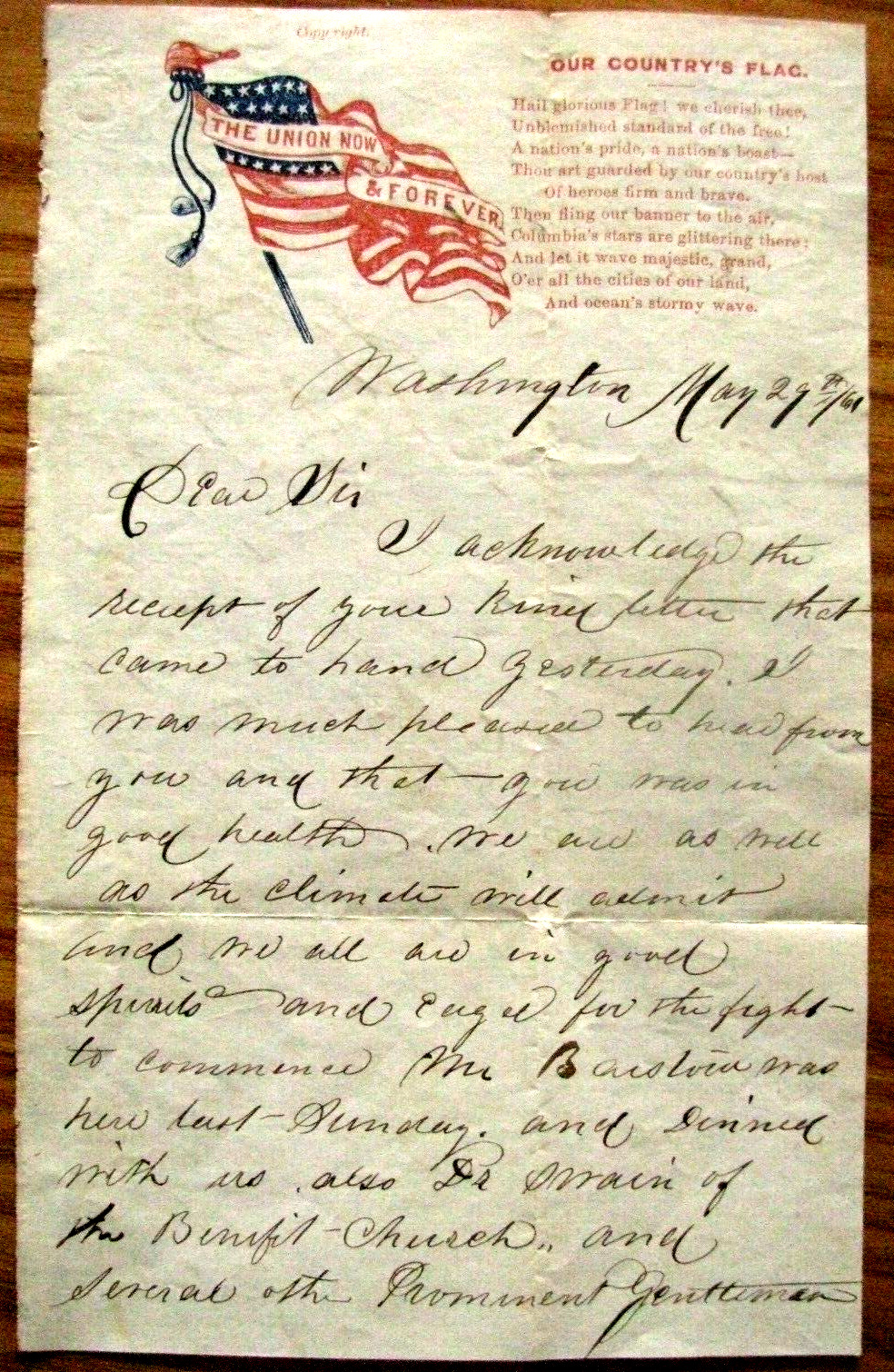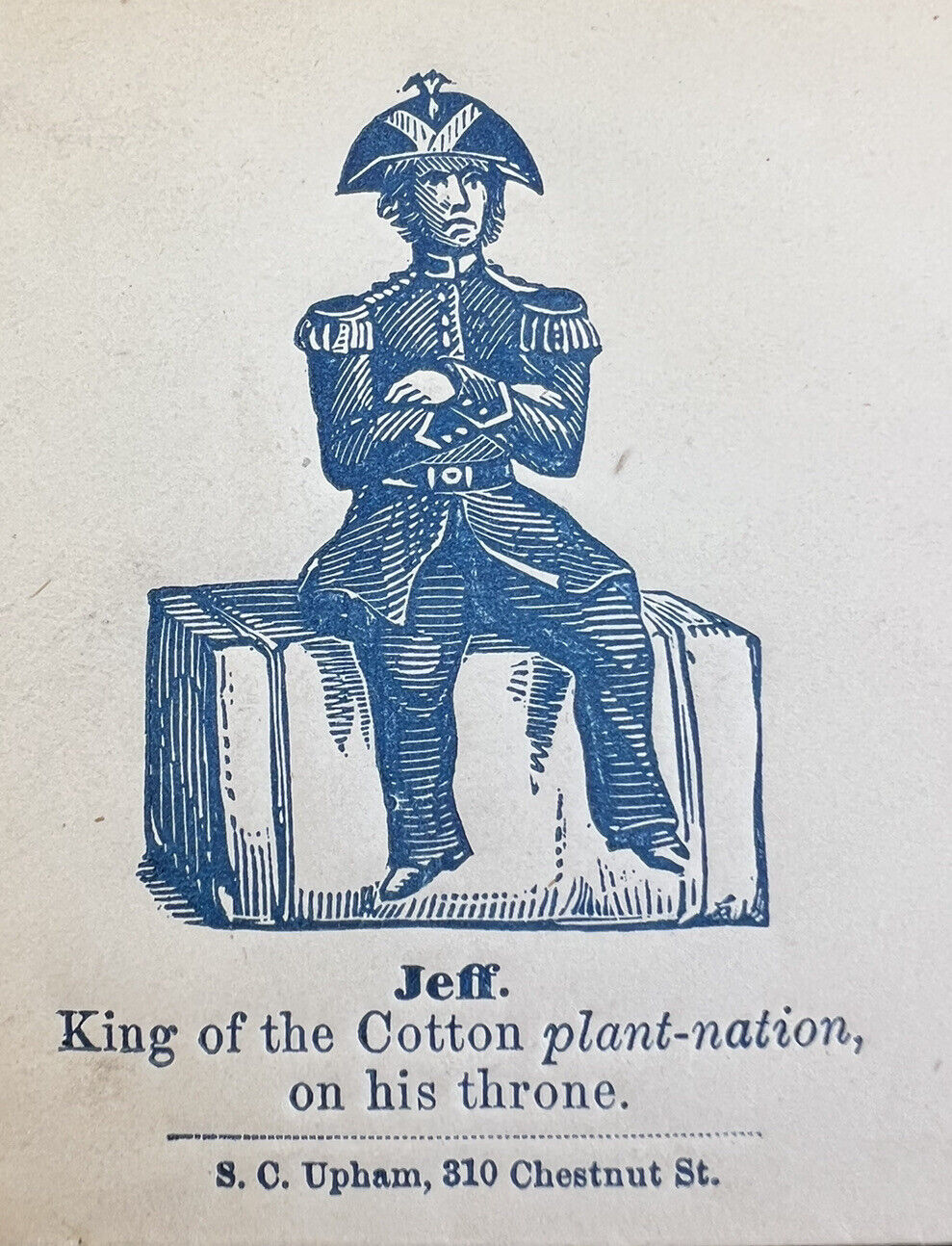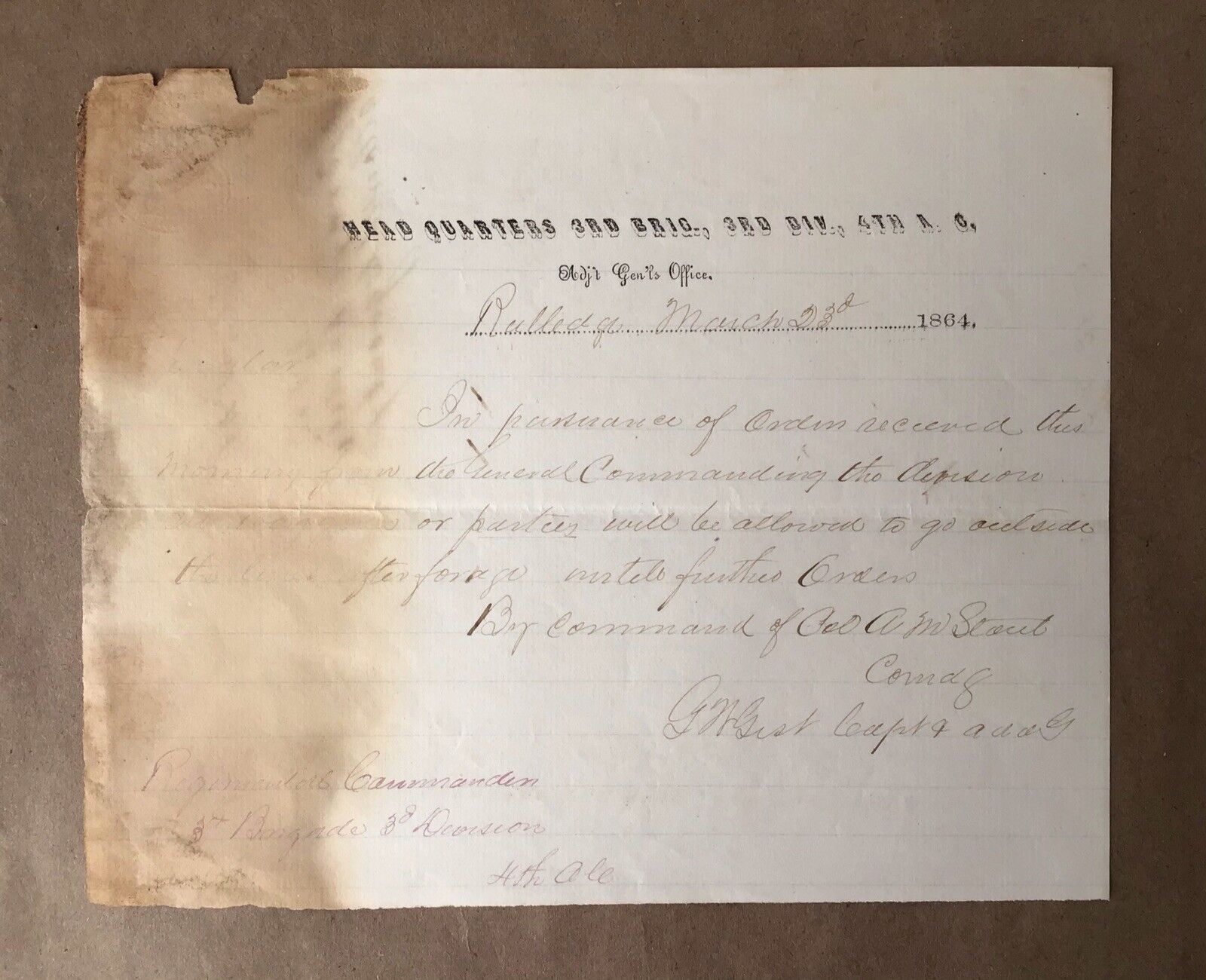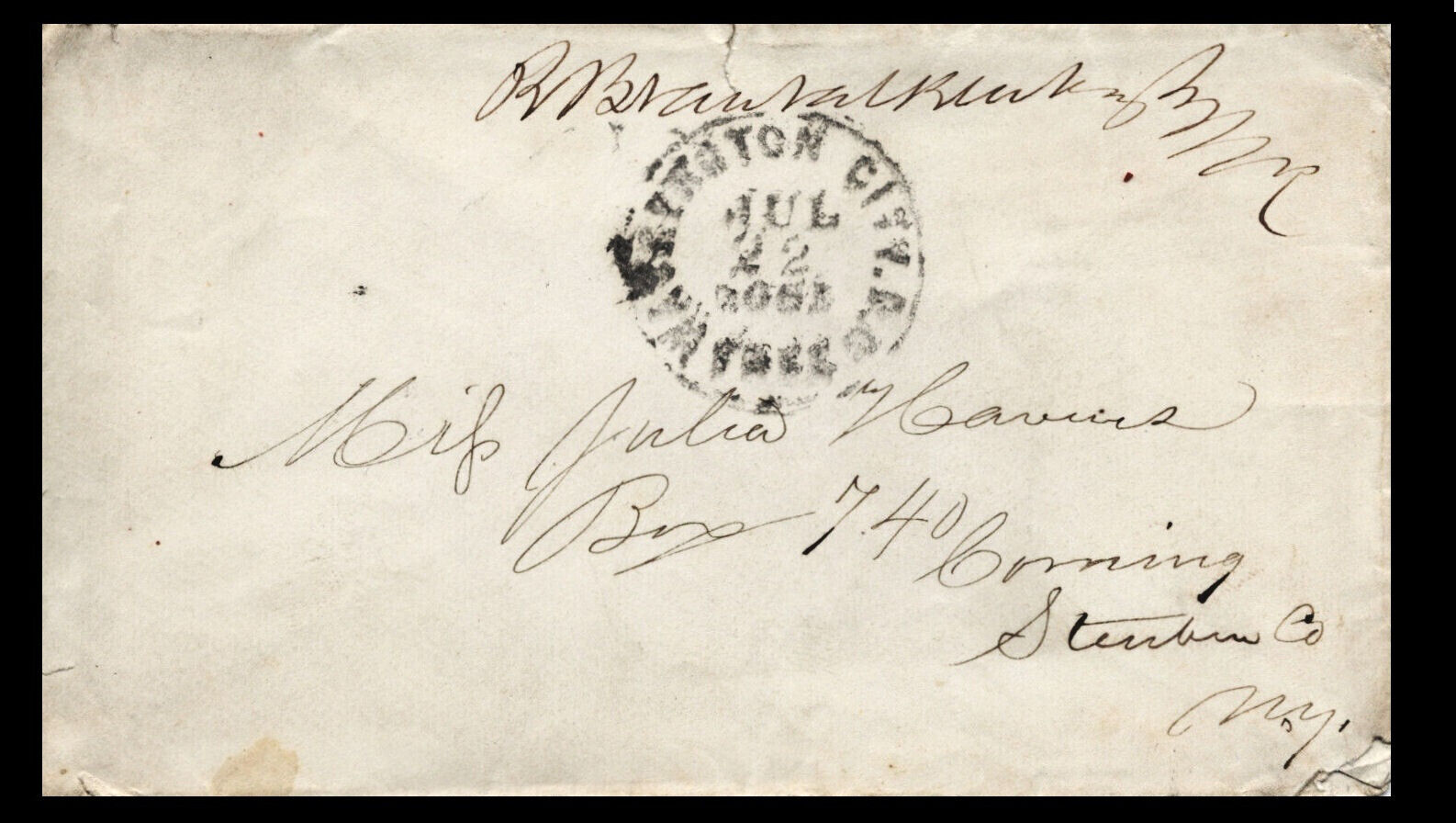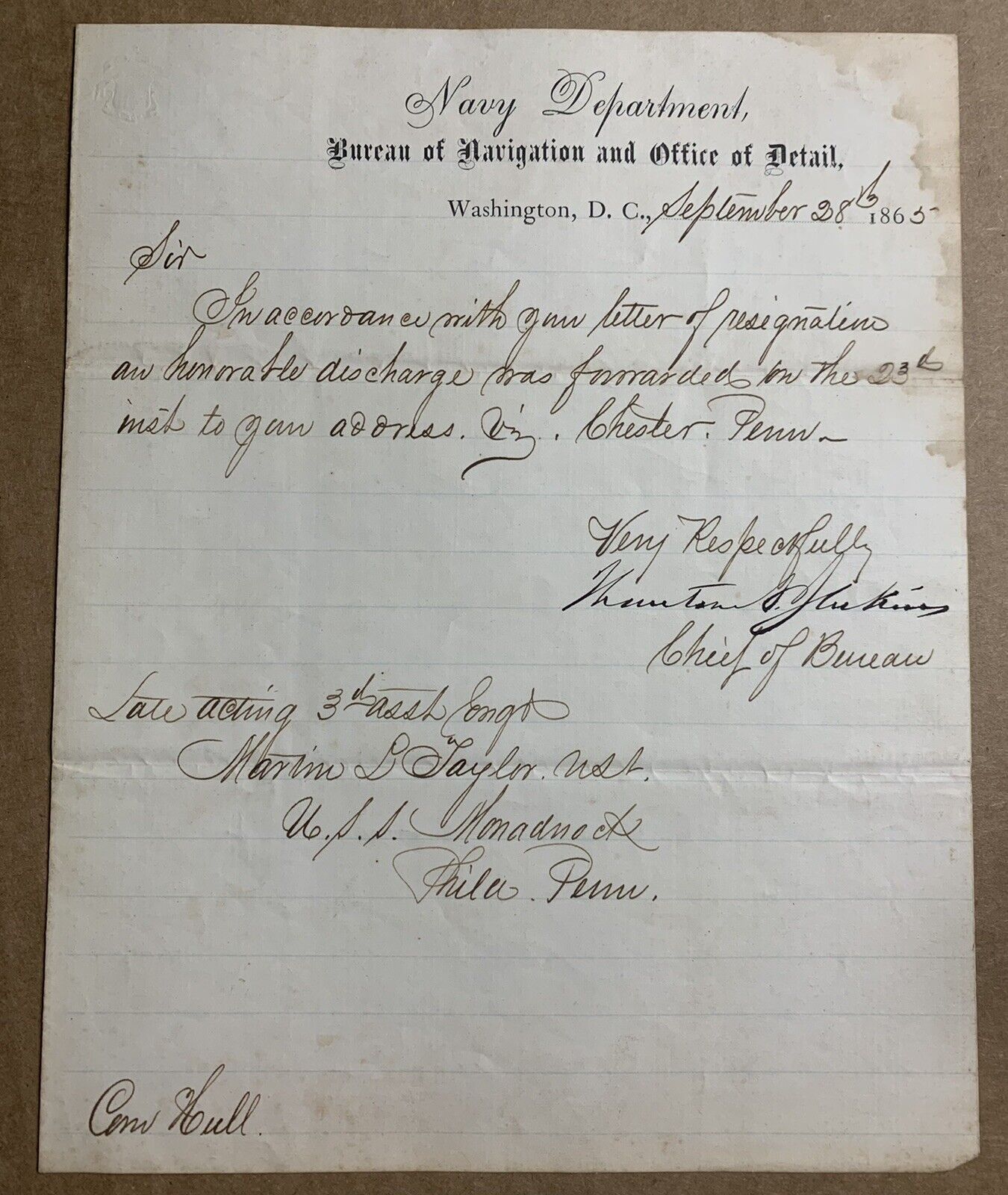-40%
CIVIL WAR GETTYSBURG GENERAL SENATOR MO DIPLOMAT INTERIOR SCHURZ LETTER SIGNED !
$ 5.53
- Description
- Size Guide
Description
CARL SCHURZ(1829 – 1906)
CIVIL WAR BATTLE OF GETTYSBURG and CHANCELLORSVILLE UNION MAJOR GENERAL 1862-65,
STATESMAN-UNITED STATES MINISTER TO SPAIN APPOINTED BY PRESIDENT LINCOLN IN 1861,
US REPUBLICAN PARTY SENATOR FROM MISSOURI – THE 1
st
GERMAN-BORN AMERICAN ELECTED TO THE US SENATE 1869-75,
13
th
UNITED STATES SECRETARY OF THE INTERIOR APPOINTED BY PRESIDENT HAYES and GARFIELD 1877-1881,
GERMAN REVOLUTIONARY 1848-1849
&
ACCOMPLISHED JOURNALIST, NEWSPAPER EDITOR, ORATOR & REFORMER!
<
<>
>
HERE’S AN AUTOGRAPH LETTER SIGNED BY SCHURZ ABOUT ‘
MISSING MAIL
,’ 1p., FRONT and VERSO, APRIL 10, 1886, NEW YORK,
TO
ABRAM STEVENS HEWITT
(1822 - 1903)
U.S. DEMOCRATIC PARTY CONGRESSMAN FROM NEW YORK 1870s-1880s,
87
th
MAYOR OF NEW YORK CITY 1887-1888,
AIDED IN OVERTHROWING THE “BOSS” TWEED RING
&
MILLIONAIRE IRON MANUFACTURER, INDUSTRIALIST and PHILANTHROPIST.
IN PART:
“Yesterday the letter carrier brought me an empty wrapper bearing your frank, informing me that it had arrived at the post office in that condition….may I trouble you for the same…documents again? And is there a way of getting a copy of the report of the Labor Commissioners?
If I am taxing your kindness too much, you must let me know…”
BOLDLY EXECUTED & SIGNED BY SCHURZ!
The document measures 4¾” x 6” and is in very finr condition.
<
<>
>
BIOGRAPHY OF CIVIL WAR MAJOR GENERAL
CARL SCHURZ
Carl Christian Schurz
(1829–1906) was a
German
revolutionary,
American
statesman and reformer, and
Union Army
Major
General
in the
American Civil War
. He was also an accomplished journalist, newspaper editor and orator, who in 1869 became the first
German-born American
elected to the
United States Senate
.
His wife,
Margarethe Schurz
, was instrumental in establishing the
kindergarten
system in the United States.
During his later years, Schurz was perhaps the most prominent independent in American politics, noted for his high principles, his avoidance of political partisanship, and his moral conscience.
[3]
He is famous for saying: "
My country, right or wrong
; if right, to be kept right; and if wrong, to be set right."
[4]
Many streets, schools, and parks are named in honor of him, including
New York City
's
Carl Schurz Park
.
Early life
Schurz was born in Liblar (now part of
Erftstadt
),
Germany
on March 2, 1829, the son of a schoolteacher. He studied at the
Jesuit Gymnasium
of
Cologne
, and learned piano under private instructors. Financial problems in his family obligated him to leave school a year early, without graduating, to help manage his family's financial affairs. Later he graduated from the
gymnasium
by passing a special examination, and he entered the
University of Bonn
.
At Bonn, he developed a friendship with one of his professors,
Gottfried Kinkel
. He joined the nationalistic
Studentenverbindung
Burschenschaft
Franconia at Bonn, which at the time included among its members
Friedrich von Spielhagen
,
Johannes Overbeck
,
Julius Schmidt
, Carl Otto Weber,
Ludwig Meyer
and
Adolf Strodtmann
.
[5]
This fraternity experience led to his joining the
Phi Kappa Psi
Fraternity at Cornell University
[6]
sponsored by his former comrade-in-arms,
Joseph Benson Foraker
.
In response to the early events of the
revolutions of 1848
, Schurz and Kinkel founded the
Bonner Zeitung
, a paper advocating democratic reforms. At first Kinkel was the editor and Schurz a regular contributor. These roles were reversed when Kinkel left for Berlin to become a member of the Prussian Constitutional Convention.
[7]
When the
Frankfurt rump parliament
called for people to take up arms in defense of the new German constitution, Schurz, Kinkel, and others from the University of Bonn community did so. During this struggle, Schurz became acquainted with
Franz Sigel
,
Alexander Schimmelfennig
,
Fritz Anneke
,
Friedrich Beust
,
Ludwig Blenker
and others, many of whom he would meet again in the Union Army during the U.S. Civil War.
During the 1849 military campaign in Palatinate and Baden, Schurz was adjunct officer of the commander of the artillery,
Fritz Anneke
, who was accompanied on the campaign by his wife,
Mathilde Franziska Anneke
. The Annekes would later move to the U.S., where each became
Republican Party
supporters. Anneke's brother,
Emil Anneke
, was a founder of the Republican party in Michigan.
Fritz Anneke achieved the rank of
colonel
and became the commanding officer of the
34th Wisconsin Volunteer Infantry Regiment
during the Civil War; Mathilde Anneke contributed to both the
abolitionist
and
suffrage movements
of the United States.
The revolution in Germany ultimately failed. When the fortress at
Rastatt
, the last holdout, surrendered with Schurz inside, Schurz escaped to
Zürich
. In 1850, he returned secretly to Prussia, rescued Kinkel from prison at
Spandau
and helped him to escape to
Edinburgh, Scotland
. Schurz then went to
Paris
, but the police forced him to leave France on the eve of the
coup d'état of 1851
, and he moved to
London
. Remaining there until August 1852, he made his living by teaching the
German language
. He married fellow revolutionary
Johannes Ronge
's sister-in-law,
Margarethe Meyer
, in July 1852 and then moved to America. Living initially in
Philadelphia
,
Pennsylvania
, the Schurzes moved to
Watertown, Wisconsin
, where Carl nurtured his interests in politics and Margarethe began her seminal work in early childhood education. Schurz is probably the best known of the
Forty-Eighters
, the German
emigrants
who came to the United States after the failed liberal revolutions.
Politics in the United States
In 1855, Schurz settled in
Watertown, Wisconsin
, where he immediately became immersed in the anti-slavery movement and in politics, joining the
Republican Party
. In 1857, he was an unsuccessful Republican candidate for lieutenant-governor. In the
Illinois
campaign of the next year between
Abraham Lincoln
and
Stephen A. Douglas
, he took part as a speaker on behalf of Lincoln—mostly in
German
—which raised Lincoln's popularity among German-American voters (though it should be remembered that Senators were not directly elected in 1858, the election being decided by the Illinois General Assembly). Later, in 1858, he was admitted to the Wisconsin
bar
and began to
practice law
in
Milwaukee
. In the state campaign of 1859, he made a speech attacking the
Fugitive Slave Law
, arguing for
states' rights
. In
Faneuil Hall
,
Boston
, on April 18, 1859,
[8]
he delivered an oration on "True Americanism," which, coming from an alien, was intended to clear the Republican party of the charge of "
nativism
". Wisconsin Germans unsuccessfully urged his nomination for governor in 1859. In the
1860 Republican National Convention
, Schurz was spokesman of the delegation from Wisconsin, which voted for
William H. Seward
; despite this, Schurz was on the committee which brought Lincoln the news of his nomination.
Civil War
In spite of Seward's objection, grounded on Schurz's European record as a revolutionary, Lincoln sent him in 1861 as
ambassador to Spain
. He succeeded in quietly dissuading Spain from supporting the South. Persuading Lincoln to grant him a commission in the Union army, Schurz was commissioned
brigadier general
of Union volunteers in April, and in June took command of a division, first under
John C. Frémont
, and then in
Franz Sigel
's corps, with which he took part in the
Second Battle of Bull Run
. He was promoted
major general
of volunteers on March 14 and was a
division
commander in the
XI Corps
at the
Battle of Chancellorsville
, under General
Oliver O. Howard
, with whom he later had a bitter controversy over the strategy employed at that battle, resulting in their defeat by
Thomas J. "Stonewall" Jackson
. He was at
Gettysburg
(a victory for the
Union
) commanding the Third Division of Howard's XI Corps, and at
Chattanooga
(also a victory for the
Union
side), at which he served with the future Senator
Joseph B. Foraker
,
John Patterson Rea
, and Luther Morris Buchwalter, brother to
Morris Lyon Buchwalter
. Senator
Charles Sumner
(R-MA) was a Congressional observer during the campaign. Later, he was put in command of a Corps of Instruction at
Nashville
. He briefly returned to active service, where in the last months of the war when he was with
Sherman
's army in
North Carolina
as chief of staff of
Henry Slocum
's
Army of Georgia
. He resigned from the army when the war ended.
Postbellum
In the summer of 1865, President
Andrew Johnson
sent Schurz through the South to study conditions; they then quarrelled because Schurz approved General
H.W. Slocum
's order forbidding the organization of militia in
Mississippi
. Schurz's report, suggesting the readmission of the states with complete rights and the investigation of the need of further legislation by a Congressional committee, was ignored by the President. In 1866, Schurz moved to Detroit, where he was chief editor of the
Detroit Post
. The following year, he moved to St. Louis, becoming editor and joint proprietor with
Emil Praetorius
of the
Westliche Post
(Western Post), where he hired
Joseph Pulitzer
as a cub reporter. In the winter of 1867-1868, he traveled in Germany – the account of his interview with
Otto von Bismarck
is one of the most interesting chapters of his
Reminiscences
. He spoke against "repudiation" (of war debts) and for "honest money" (the gold standard) during the Presidential campaign of 1868.
In 1869, he was elected to the
United States Senate
from
Missouri
, becoming the first German American in that body. He earned a reputation for his speeches, which advocated fiscal responsibility, anti-imperialism, and integrity in government. During this period, he broke with the
Grant
administration, starting the
Liberal Republican
movement in Missouri, which in 1870 elected
B. Gratz Brown
governor.
After
Fessenden's
death, Schurz was a member of the Committee on Foreign Affairs where Schurz opposed Grant's Southern policy as well as his bid to annex
Santo Domingo
. Schurz was identified with the committee's investigation of arms sales to and cartridge manufacture for the French army by the United States government during the
Franco-Prussian War
.
In 1872, he presided over the
Liberal Republican
convention, which nominated
Horace Greeley
for
President
. Schurz's own choice was
Charles Francis Adams
or
Lyman Trumbull
, and the convention did not represent Schurz's views on the tariff. Schurz campaigned for Greeley anyway. Especially in this campaign, and throughout his career as a Senator and afterwards, he was a target for the pen of
Harper's Weekly
artist
Thomas Nast
, usually in an unfavorable way.
[9]
The election was a debacle for the Greeley supporters: Grant won by a landslide, and Greeley died shortly after the election.
In 1875, he campaigned for
Rutherford B. Hayes
, as the representative of
sound money
, in the
Ohio
governor's campaign.
Interior Secretary
In 1876, he supported Hayes for President, and Hayes named him
Secretary of the Interior
, following much of his advice in other cabinet appointments and in his inaugural address. In this department, Schurz put in force his theories in regard to merit in the
Civil Service
, permitting no removals except for cause, and requiring competitive examinations for candidates for clerkships. His efforts to remove political patronage met with limited success. As an early conservationist, he prosecuted land thieves and attracted public attention to the necessity of forest preservation.
During Schurz's tenure as Secretary of the Interior, there was a movement, strongly supported by Gen. William Tecumseh Sherman, to transfer the
Office of Indian Affairs
to the
War Department
.
[10]
Restoration of the Indian Office to the War Department, which was anxious to regain control in order to continue its "pacification" program, was opposed by Schurz, and ultimately the Indian Office remained in the Interior Department. The Indian Office had been the most corrupt of the Interior Department. Positions there were based on political patronage and seen as granting license to use the reservations for personal enrichment. Schurz realized that the service would have to be cleansed of corruption before anything positive could be accomplished, so he instituted a wide-scale inspection of the service, dismissed several officials, and began civil service reforms, where positions and promotions were based on merit, not political patronage.
[11]
Schurz's leadership of the Indian Affairs Office was not uncontroversial. While certainly not an architect of the campaign to push Native Americans off their lands and into tribal reservations, Schurz continued the previous practice of the Bureau of Indian Affairs of resettling tribes on reservations. In response to several nineteenth century reformers, however, Schurz later rescinded his approval of the policy of removing Indians from their homelands, promoting assimilationist policies that were in favor among reformers at the time.
[12]
[13]
New York City
Upon leaving the Interior Department in 1881, Schurz moved to
New York City
. That year
Henry Villard
acquired the
New York Evening Post
and
The Nation
and turned the management over to Schurz,
Horace White
and
Edwin L. Godkin
.
[15]
Schurz left the
Post
in the autumn of 1883 because of differences over editorial policies regarding corporations and their employees.
[16]
In 1884, he was a leader in the Independent (or
Mugwump
) movement against the nomination of
James Blaine
for president and for the election of
Grover Cleveland
. From 1888 to 1892, he was general American representative of the
Hamburg American Steamship Company
. In 1892, he succeeded
George William Curtis
as president of the
National Civil Service Reform League
and held this office until 1901. He also succeeded Curtis as editorial writer for
Harper's Weekly
in 1892 and held this position until 1898. In 1895 he spoke for the Fusion anti-
Tammany Hall
ticket in New York City. He opposed
William Jennings Bryan
for
president in 1896
, speaking for sound money and not under the auspices of the Republican party; he supported Bryan
four years later
because of anti-
imperialism
beliefs, which also led to his membership in the
American Anti-Imperialist League
. At the age of 69, Schurz and other Mugwumps, lobbied President
McKinley
to resist imperialism and not to annex
Cuba
during the
Spanish American War
.
[17]
Schurz argued later racially that culture and languages of
Spanish creole
and
Africans
would corrupt American politics; enabling Spanish-Americans to elect
U.S. Presidents
.
[17]
In the 1904 election
he supported
Alton B. Parker
, the Democratic candidate. Carl Schurz lived in a summer cottage in Northwest Bay on Lake George, New York which was built by his good friend
Abraham Jacobi
. Schurz died in New York City and is buried in
Sleepy Hollow Cemetery
,
Sleepy Hollow, New York
.
German-American identity
Schurz maintained a relationship with the German
expatriate
community. He addressed a group of German immigrants at the
Chicago World's Fair
in 1893:
I have said: who does not honor the old fatherland is not worthy of the new, but I say also he is not worthy of the old fatherland who is not one of the most faithful citizens of the new.
Noblesse oblige
. To be a German now means more than it meant before he belonged to one united nation. He who calls himself a German now must never forget his honorable obligation to his name; he must honor Germany in himself. The German-American can accomplish great things for the development of the great composite nation of the new world, if in his works and deeds he combines and welds the best that is in the German character with the best that is in the American. — Carl Schurz,
German Day
, June 15, 1893.
"The True Americanism"
What is the rule of honor to be observed by a power so strongly and so advantageously situated as this Republic is? Of course I do not expect it meekly to pocket real insults if they should be offered to it. But, surely, it should not, as our boyish
jingoes
wish it to do, swagger about among the nations of the world, with a chip on its shoulder, shaking its fist in everybody's face. Of course, it should not tamely submit to real encroachments upon its rights. But, surely, it should not, whenever its own notions of right or interest collide with the notions of others, fall into hysterics and act as if it really feared for its own security and its very independence. As a true gentleman, conscious of his strength and his dignity, it should be slow to take offense. In its dealings with other nations it should have scrupulous regard, not only for their rights, but also for their self-respect. With all its latent resources for war, it should be the great peace power of the world. It should never forget what a proud privilege and what an inestimable blessing it is not to need and not to have big armies or navies to support. It should seek to influence mankind, not by heavy artillery, but by good example and wise counsel. It should see its highest glory, not in battles won, but in wars prevented. It should be so invariably just and fair, so trustworthy, so good tempered, so conciliatory, that other nations would instinctively turn to it as their mutual friend and the natural adjuster of their differences, thus making it the greatest preserver of the world's peace. This is not a mere idealistic fancy. It is the natural position of this great republic among the nations of the earth. It is its noblest vocation, and it will be a glorious day for the United States when the good sense and the self-respect of the American people see in this their "manifest destiny." It all rests upon peace. Is not this peace with honor? There has, of late, been much loose speech about "Americanism." Is not this good Americanism? It is surely today the Americanism of those who love their country most. And I fervently hope that it will be and ever remain the Americanism of our children and our children's children.
—
Carl Schurz,
"
The True Americanism
", address delivered in New York City at a meeting of the Chamber of Commerce of the State of New York, January 2, 1896.
Patriotism
The man who in times of popular excitement boldly and unflinchingly resists hot-tempered clamor for an unnecessary war, and thus exposes himself to the opprobrious imputation of a lack of patriotism or of courage, to the end of saving his country from a great calamity, is, as to "loving and faithfully serving his country," at least as good a patriot as the hero of the most daring feat of arms, and a far better one than those who, with an ostentatious pretense of superior patriotism, cry for war before it is needed, especially if then they let others do the fighting.
—
Carl Schurz,
"
About Patriotism
", Harper’s Weekly, April 16, 1898.
Publications
Schurz published a number of writings, including a volume of speeches (1865), a two-volume biography of
Henry Clay
(1887), essays on Abraham Lincoln (1899) and
Charles Sumner
(posthumous, 1951), and his
Reminiscences
(posthumous, 1907–09). His later years were spent writing the memoirs recorded in his
Reminiscences
which he was not able to finish — he only reached the beginnings of his U.S. Senate career.
In memoriam
Schurz is memorialized in numerous places around the United States:
Carl Schurz Park
, a 14.9 acre (60,000 m²) park in
New York City
, adjacent to
Yorkville, Manhattan
, overlooking the waters of
Hell Gate
. Named for Schurz in 1910, it is the site of
Gracie Mansion
, the residence of the
Mayor of New York
since 1942
Karl Bitter
's 1913 monument to Schurz outside
Morningside Park
, at Morningside Drive and 116th Street in New York City
Carl Schurz and Abraham Jacobi Memorial Park in
Bolton Landing, New York
Schurz, Nevada
named after him
Carl Schurz Drive, a residential street in the northern end of his former home of
Watertown, Wisconsin
Schurz Elementary School, in
Watertown, Wisconsin
Carl Schurz Park
, a private membership park in Stone Bank
(Town of Merton)
, Wisconsin, on the shore of Moose Lake
Schurz Monument ("Our Greatest German American") in Menominee Park,
Oshkosh, Wisconsin
[1]
Carl Schurz High School
, a historic landmark in
Chicago
, built in 1910.
Schurz Hall, a student residence at the
University of Missouri
.
Carl Schurz Elementary School in
New Braunfels, Texas
Mount Schurz
, a mountain in eastern Yellowstone, north of
Eagle Peak
and south of Atkins Peak, named in 1885 by the
United States Geological Survey
, to honor Schurz's commitment to protecting
Yellowstone National Park
In 1983, the U.S. Postal Service issued a 4-cent
Great Americans series
postage stamp with his name and face
In World War II, the United States
liberty ship
SS
Carl Schurz
was named in his honor.
The
USS
Carl Schurz
was commissioned in 1917 as a Patrol Gun Boat. Formerly the small unprotected cruiser
SMS
Geier
of the German Imperial Navy, the ship had been taken over by the U.S. Navy when hostilities between Germany and the U.S. commenced, after having been interned in Honolulu in 1914. The
Schurz
sank after a collision in April 1918 off Beaufort Inlet, Florida.
Several memorials in
Germany
also commemorate the life and work of Schurz:
Streets named after him in
Berlin-Spandau
,
Bremen
,
Stuttgart
,
Erftstadt-Liblar
,
Giessen
,
Heidelberg
,
Karlsruhe
,
Köln
,
Rastatt
,
Paderborn
,
Pforzheim
,
Pirmasens
,
Leipzig
,
Wuppertal
Schools in
Bonn
,
Bremen
,
Berlin-Spandau
,
Frankfurt am Main
,
Rastatt
and his place of birth,
Erftstadt-Liblar
The Carl Schurz Haus in
Freiburg im Breisgau
is an innovative institute (formerly Amerika-Haus) fostering German-American cultural relations
an urban area in
Frankfurt am Main
the Carl Schurz Bridge over the
Neckar River
[2]
a memorial fountain as well as the house where Lt. Schurz was billeted in 1849 in
Rastatt
German Armed Forces barracks in
Hardheim
German federal stamps in 1952 and 1976
The
United States Army
base in
Bremerhaven
, Germany was also named for Schurz - Karl Schurz Kaserne. The base served as a logistical hub for U.S. forces in Germany. The
base
was returned to the German government in 1996, following the end of the
Cold War
.
Schurz was portrayed by
Edward G. Robinson
in
John Ford
's film
Cheyenne Autumn
(1963), which shows in part his efforts to secure fair treatment for Native Americans.
Highlights of Schurz's career are dramatized in the third part (“Little Germanies”) of Engstfeld Film's four-part series
Germans in America
(2006).
[18]
Notes
1.
Wisconsin Historical Society: Schurz, Carl 1829 - 1906
2.
Schurz, Margarethe [Meyer] (Mrs. Carl Schurz) 1833 - 1876
3.
"Nation's Orators Glorify Schurz; Carnegie Hall Memorial a People's Tribute. Country Needs Such Men; Chairman Choate Rebukes New York Senators -- Cleveland, Eliot and Others Speak,"
New York Times.
November 22, 1906. These tributes are available in Wikisource at
Addresses in Memory of Carl Schurz
.
4.
Schurz, Carl, remarks in the Senate, February 29, 1872,
The Congressional Globe
, vol. 45, p. 1287. See
Wikisource
for the complete speech.
5.
Schurz, Carl.
Reminiscences
, Vol. 1, pp. 93-94.
6.
Van Cleve, Charles L. (1902).
Phi Kappa Psi Fraternity From Its Foundation In 1852 To Its Fiftieth Anniversary
. p. 209
: Philadelphia: Franklin Printing Company.
7.
Schurz,
Reminiscences
, Vol. 1, Chap. 6, pp. 159.
8.
Hirschhorn, p. 1713.
9.
This story, and the conflict between Nast and Harper's editorial writer George William Curtis, is related by Albert Bigelow Paine in
Thomas Nast: His Period and His Pictures
, 1904.
10.
"Army charges answered"
.
The New York Times
: 5. December 7, 1878. "ARMY CHARGES ANSWERED; THE INDIAN SERVICE UPHELD BY MR. SCHURZ. WHY IT WOULD BE UNWISE TO TRANSFER THE INDIAN BUREAU TO THE WAR DEPARTMENT--INCONSISTENT AND INACCURATE STATEMENTS BY MILITARY OFFICERS--LOOSE MANAGEMENT UNDER THE ARMY. INCONSISTENT AND INACCURATE STATEMENTS BY ARMY OFFICERS. ALLEGED ARMY DISHONESTY. MEASURES OF IMPORTANCE. MR. SCHURZ CROSS-EXAMINED. OTHER WITNESSES"
11.
Trefousse, Hans L.,
Carl Schurz: A Biography
, (U. of Tenn. Press, 1982)
12.
Hoxie, Frederick E.
A Final Promise: The Campaign to Assimilate the Indians, 1880-1920,
Lincoln, NE: University of Nebraska Press, 1981.
13.
"Annual Report of the Secretary of the Interior, November 1, 1880," In Prucha, Francis Paul, ed.,
Documents of United States Indian Policy,
Lincoln, NE: University of Nebraska Press, 2000. See
Google Books
.
14.
Sturm und Drang Over a Memorial to Heinrich Heine
.
The New York Times
, May 27, 2007.
15.
Oswald Garrison Villard
(1936). "White, Horace".
Dictionary of American Biography
. New York:
Charles Scribner's Sons
.
16.
“
No Longer an Editor; Carl Schurz Severs his Connection with the 'Evening Post'
.”
The New York Times
, December 11, 1883
17.
Tucker (1998), p. 114
18.
"Germans in America"
. Engstfeld Filmproduktion
. Retrieved 14 April 2011
.
See the accompanying press photos. A photo from the Schurz dramatizations appears in the photos for the second part (“The Price of Freedom”), but at least in a DVD viewing of 10 April 2011 the bulk of the dramatizations appeared in the third part.
I am a proud member of the Universal Autograph Collectors Club (UACC), The Ephemera Society of America, the Manuscript Society and the American Political Items Collectors (APIC) (member name: John Lissandrello). I subscribe to each organizations' code of ethics and authenticity is guaranteed. ~Providing quality service and historical memorabilia online for over twenty years.~
WE ONLY SELL GENUINE ITEMS, i.e., NO REPRODUCTIONS, FAKES OR COPIES!




